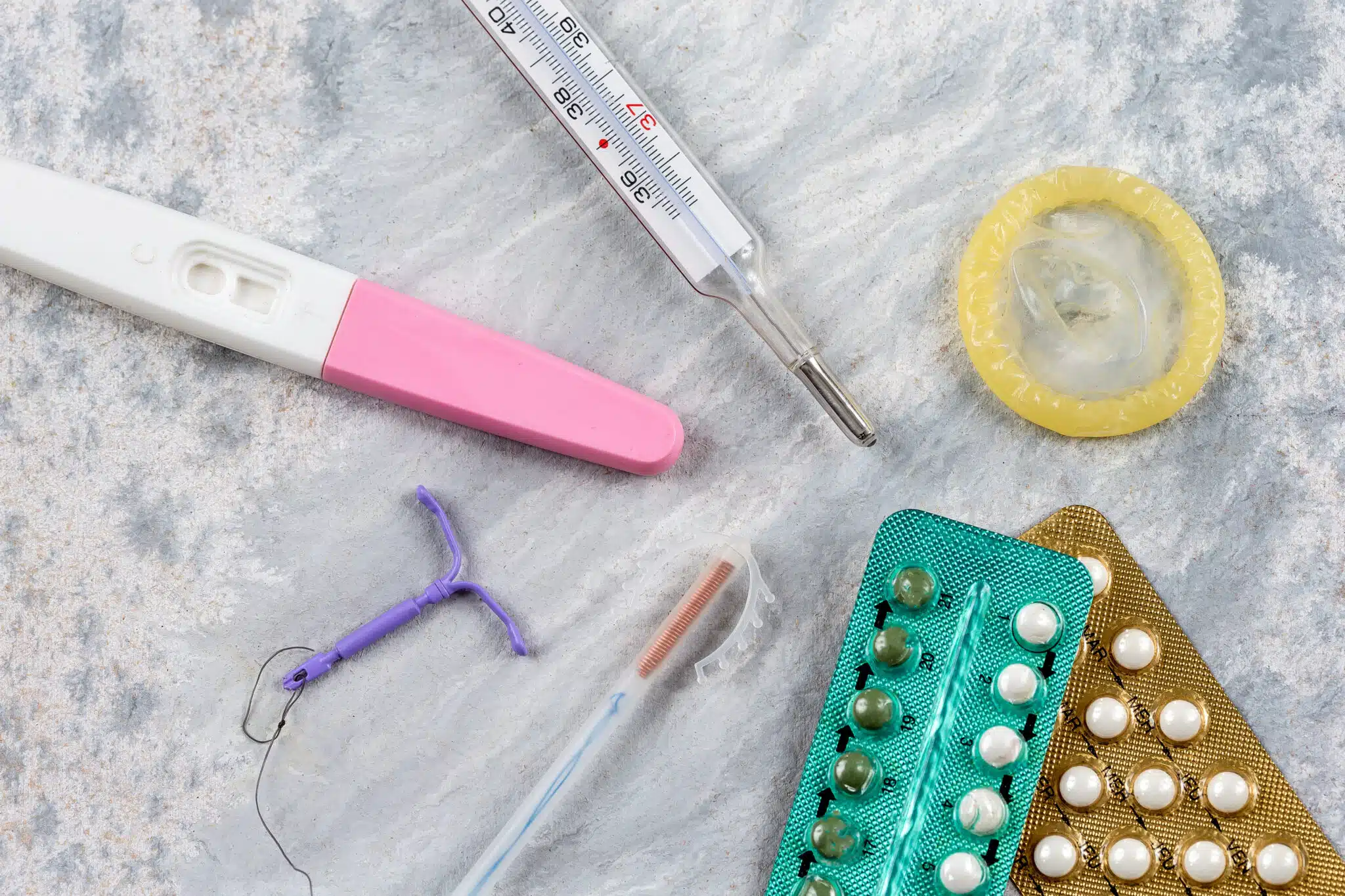The birth control shot, Depo-Provera (DP), is an injectable contraceptive drug that sometimes has an abortifacient effect. While the intention behind using it is simply to prevent pregnancy, it also possesses a long list of shocking risks and side effects.
A Brief History of Abusing Poor Women
IN a 1967 11-year trial, DP was tested on a disproportionate number of poor, black, and rural women without informed consent and without giving the women information on the drug’s serious side effects. Upjohn Pharmaceuticals performed this study in an incredibly sloppy manner. They ignored the annual reports required by the Food and Drug Administration, lost 93% of patient records so that no follow-up studies could be done, and neglected to report deaths and very serious side effects cause by DP.1
This meant that the data from the study was entirely meaningless and unusable. Not surprisingly, the FDA withheld approval of DP both at the beginning and at the end of the study, not only because of the way the study was conducted, but because of a proven elevation in the risk of breast cancer among its users. In 1983, the FDA refused approval of DP a third time.
But in 1992, the FDA approved it for use in the United States over the objections of pro-life groups and even several pro-abortion women’s organizations, including the National Women’s Health Network and the National Black Women’s Health Project. Those following the proceedings were convinced that the FDA caved in under intense lobbying by Upjohn and pressure brought by population control groups.2 In June of the following year, Canada’s Department of Health and Welfare prohibited the use of DP, saying that the drug did not meet Canadian safety standards as a method of birth control.3
Pfizer now owns the drug. Pfizer also manufactures Depo-subQ Provera 104, a subcutaneous injection of DMPA using a smaller needle. This dose is promoted as Sayana Press, which is heavily promoted primarily in African nations by Pfizer, the Gates Foundation and the Children’s Investment Fund Foundation.4
Even worse, the WHO has launched ECHO, a large clinical study conducted in 12 African sites to determine whether DP increases the risk of HIV. Why do these organizations insist on making third-world nations test subjects?
DP is now available in more than 90 countries and is particularly popular among population controllers in Africa and the Caribbean and among those “caring” for native peoples in Thailand and New Zealand. As with all other abortifacients that may pose a danger to Western women, DP was first extensively tested on Third World women. The World Health Organization (WHO) used DP on more than 11,000 women in Kenya, Mexico, and Thailand before it was submitted to the FDA for approval.5
How Depo-Provera Works
DP is one of a class of steroids that employ powerful hormones to control the female reproductive system. Other steroids in this class include birth control pills, the morning-after pill (MAP) and emergency contraception (EC), the implantables (Norplant, Jadelle, and Implanon), and some of the intra-uterine devices (IUDs).

Photo by Hyttalo Souza
DP’s active ingredient is depot-medroxyprogesterone acetate (DMPA), a synthetic form of the natural hormone progesterone, originally developed for the treatment of uterine cancer in the 1950s. Women receive 150 milligrams of DMPA via deep intramuscular injection every three months.
DP has three modes of action, similar to other methods of birth control that employ artificial progesterones as active ingredients:
- It prevents ovulation (the release of an egg from the ovary).
- It inhibits the entry of sperm through the cervix by altering the cervical mucus.
- It alters the lining of the uterus such that, should a fertilized egg reach the uterus, it would have difficulty implanting.6
According to Upjohn’s patient information pamphlet on DP, the compound “inhibits the secretion of gonadotropins which, in turn, prevents follicular maturation and ovulation and results in endometrial thinning.”7
In other words, Upjohn acknowledges that Dep-Provera sometimes acts as an abortifacient.
The authoritative Contraceptive Technology confirms that DP causes early abortions. It alters the endometrium (the lining of the uterus) so that its degree of receptivity to the blastocyst (very early developing human being) is significantly decreased. According to Contraceptive Technology, “Other contraceptive actions include the development of a shallow and atrophic [thinning] endometrium.”8 When DP works in this way, it is an abortifacient.
Many women’s menstrual cycles continue when using DP, 43% after 12 months and 32% after 24 months.9 This data shows that the compound does not completely suppress ovulation in a large percentage of women who use this drug, so many early abortions occur.

Cemetery where crosses mark loss of the Unborn. Image: courtesy of LifeSiteNews.
Adverse Reactions to Depo-Provera
Current patient information pamphlets on DP list more than sixty adverse reactions suffered by women who use the compound, including these:
- Women on DP report an average weight gain of 5.4 pounds in the first year and 16.5 pounds over six years.
- Many users also experience osteoporosis (loss of bone mass) and a higher incidence of broken bones.10 The onset of osteoporosis is cumulative (Gets worse the longer a woman is on DP), remains long after the injections have ceased, and in many cases is irreversible. Because of this danger, the FDA ordered Pfizer to put a black box warning (its strongest warning) on its patient information pamphlets.11
- In women who have used DP for the first time within the last four years, and who are under 35 years of age, the risk of breast cancer increases 129%.12 Use of DP may be associated with ectopic pregnancy, thrombophlebitis (inflammation of blood vessels associated with blood clots), pulmonary embolism (obstruction of the pulmonary artery by a blood clot, air bubble, or other material), cerebrovascular disorders, and partial or complete loss of vision in mothers, and polysyndactyly (webbing and extra digits of the hands and feet) hypospadias (genital tract abnormalities) and chromosomal anomalies among infants born to them.
- More than 5% of users suffer headaches, nervousness, abdominal pain or discomfort, dizziness, or asthenia (weakness or fatigue).
- Between 1 and 5% report one or more of the following ailments: decreased sexual desire or anorgasmia, depression, nausea, insomnia, abnormal vaginal discharges, pelvic and breast pain, rashes, hot flashes, swelling, vaginitis, and acne.
- A study by the Gates Foundation in 2011 found that DP was likely to more than double HIV rates among African women.
- Other serious side effects include chest pains, pulmonary embolisms, allergic reactions, anemia, racing heart rate, abnormal blood chemistry, rectal bleeding, breast lumps or nipple bleeding, paralysis, facial palsy, abnormal growth of the uterus, varicose veins, and deep vein thrombosis.
The black box warning reads as follows:
WARNING: LOSS OF BONE MINERAL DENSITY
Women who use Depo-Provera Contraceptive Injection (Depo-Provera CI) may lose significant bone mineral density. Bone loss is greater with increasing duration of use and may not be completely reversible [see Warnings and Precautions (5.1)].
It is unknown if use of Depo-Provera CI during adolescence or early adulthood, a critical period of bone accretion, will reduce peak bone mass and increase the risk for osteoporotic fracture in later life [see Warnings and Precautions (5.1)].
Depo-Provera CI is not recommended as a long-term (i.e., longer than 2 years) birth control method unless other options are considered inadequate [see Indications and Usage (1) and Warnings and Precautions (5.1)].
There are studies to suggest that women who used DP are at significantly higher risk of getting an STD. It’s unclear whether this is due to behavioral factors or due to the shot itself. But according to researchers at the National Institutes of Health, Johns Hopkins University, and the University of North Carolina, higher rates of STDs among Depo-Provera users remain despite accounting for behavioral factors.
Further, DP was banned in 1978 in the US for contraceptive uses over concerns about the carcinogen effects, despite the WHO and the International Planned Parenthood Fund endorsing its use in third-world nations. It has also been used to castrate criminals. Additionally, many women do not know that DP should only be used for a maximum of two years under normal circumstances. Thus, some take DP for many years beyond and suffer the side effects.
A woman who is suffering from the side effects of this drug has no way to rid herself of the pernicious chemical except by waiting several months.
Abuses of the Birth Control Shot
From the point of view of a population controller, DP is very desirable because it can be controlled by medical professionals. It also causes three or more months of sterility and requires less operator skill to implement than sterilization, implantation of Norplant, or insertion of an IUD.
- When my wife Kathy and I were in Uganda…we frequently saw white “Reproductive Health Unit” pickup trucks zooming through the countryside. These RHUs usually consist of two or three young men with little or no medical training who are given a few hours of instruction, a box of Depo shots and other types of birth control, and orders to go out into the country and get as many women as they can on birth control under a quota and reward system. We spoke with several groups of women who were victimized by these teams, some of whom said that they were injected with Depo after being told that it was an anti-malaria shot.
- In January 2013, the Israeli health ministry discontinued a program targeting Ethiopian Jews in the country without informed consent.13
- The white owners of commercial farms in Zimbabwe forced their black female workers to accept DP shots, and as a result, the drug was banned in 1981.14
- In 2002, after widespread abuses, the Indian government ceased distribution of both Norplant and DP.15
- DP is also used disproportionally against the fertility of poor black women in the U.S.
Such efforts to target poor women have been ramped up significantly by Melinda Gates’ 2012 Family Planning Summit, with the cooperation of the International Planned Parenthood Federation (IPPF), the United States Agency for International Development (USAID), the United Nations and, of course, Pfizer, which stands to make billions of dollars of profit annually from the sale and distribution of the various types of DP. Indeed, they have recently expanded their partnership to continue distributing DP (now called Sayana® Press, which is simply a new form of DP) for cheap to specifically low-income nations.
Additionally, the UN has outlined “sustainable development goals” (SDGs) they hope to realize by 2030. One of these is “…to ensure universal access to sexual and reproductive health-care services, including for family planning, information and education, and the integration of reproductive health into national strategies and programmes.” No wonder businesses like the Gates Foundation, IPPF, or Pfizer are pushing so hard to deliver contraceptives to women in developing nations, as the UN fully supports this venture. It is curious why such large businesses insist on controlling the fertility of women in developing nations. The contents of the Kissinger Report give us some clues.
Conclusion
Common ground between hard-core pro-abortion and pro-life groups is almost nonexistent. However, almost all of us agree that the birth control shot Depo-Provera poses an unacceptable health risk to women, especially those who are poor. We also agree that DP is being used to target both poor minority women in the United States and in developing nations.
It is time to speak the truth about Depo-Provera.
This article was originally published in April 2017 by Dr. Brian Clowes and was most recently updated in January 2024 by Marisa Cantu.
+ Endnotes
[1] Andy Smith. “Better Dead Than Pregnant: The Colonization of Native Women’s Reproductive Health,” in Jael Silliman and Anannya Bhattacharjee (editors). Policing the National Body: Race, Gender, & Criminalization [Cambridge, Massachusetts: South End Press], 2002.
[2] “Contraceptives: Case for Public Enquiry.” Economic and Political Weekly, Volume 29, Number 15 (April 9, 1994), pages 825–826.
[3] Gwen Duggan, Vice-President of Women for Women’s Health. “Depo-Provera and Women’s Health.” The Vancouver Sun, February 1993.
[4] Jane Dreaper. “The One Dollar Contraceptive Set to Make Family Planning Easier.” BBC News, November 15, 2014 at http://www.bbc.com/news/health-30026001.
[5] Karen Hawkins and Jeff Elliott. “Seeking Approval.” Albion Monitor, May 5, 1996.
[6] University of California at Berkeley University Health Services, Tang Center. “Depo-Provera for Contraception,” March 28, 2011. See also October 2010 patient information pamphlet by Physicians Total Care.
[7] Patient information brochure. “Now Available in the U.S.: Depo-Provera Contraceptive Injection.” Upjohn Pharmaceuticals, December 1992. The pamphlet also says that Depo-Provera “[has a] contraceptive effect produced by inhibiting the secretion of gonadotropins (FSH, LH), which prevents follicular maturation and ovulation.… Suppresses the endometrium [the mucous membrane lining the uterus] and changes cervical mucus.”
[8] Robert A. Hatcher, et. al. Contraceptive Technology (18th Revised Edition) [New York City: Ardent Media, Inc.], 2004. Chapter 20, “Depo-Provera Injections, Implants, and Progestin-Only Pills (Minipills),” pages 461 to 494.
[9] Patient information brochure. “Now Available in the U.S.: Depo-Provera Contraceptive Injection.” Upjohn Pharmaceuticals, December 1992.
[10] On October 30, 1992, the Los Angeles Times, Houston Chronicle, and Minneapolis Star-Tribune, among other major newspapers, reported, “Use of Depo-Provera may be considered among the risk factors for developing osteoporosis. The rate of bone loss is greatest in the early years of use.” See also Health Canada’s Canadian Adverse Drug Reaction Monitoring Program (CADRMP), Marketed Health Products Directorate, “New Safety Information on the Use of DEPO-PROVERA (medroxyprogesterone acetate suspension for injection, 150 mg IM) associated with Bone Mineral Density Changes,” July 7, 2005.
[11] United States Food and Drug Administration. “Black Box Warning Added Concerning Long-Term Use of Depo-Provera Contraceptive Injection,” November 17, 2004.
[12] On October 30, 1992, the Los Angeles Times, Houston Chronicle, and Minneapolis Star-Tribune, among other major newspapers, reported, “A slight increased overall risk of breast cancer has been associated with use in women under 35 years of age whose first exposure to the Depo-Provera Contraceptive Injection was within the previous four years. Other complications include weight changes, menstrual irregularities, headache, dizziness, nervousness, abdominal pain or discomfort, and asthenia (weakness or fatigue).”
[13] “Israel Accused of Dooming Ethiopian Baby Boom.” RT, February 24, 2010; Renee Ghert-Zand. “Shocking Decline in Ethiopian Israeli Birthrate.” The Jewish Daily Forward, December 10, 2012; Talila Nesher). “Israel Admits Ethiopian Women were Given Birth Control Shots.” Haaretz, January 27, 2013.
[14] Amy Kaler (Department of Sociology, University of Minnesota). “A Threat to the Nation and a Threat to the Men: The Banning of Depo-Provera in Zimbabwe, 1981.” Journal of Southern African Studies (Volume 24, Number 2), pages 347 to 376.
[15] Andy Smith. “Better Dead Than Pregnant: The Colonization of Native Women’s Reproductive Health,” in Jael Silliman and Anannya Bhattacharjee (editors). Policing the National Body: Race, Gender, & Criminalization [Cambridge, Massachusetts: South End Press], 2002.














I have heard years ago that this was a strategy for birth control amongst disadvantage and poor nations such as Africa,all because we African are poor and lack the education,women who use this depo provera struggle with hormonal imbalance,infertility,weight gain and most of all to depopulate Africa and cause more harm on our health and suffering to our us as Africans.
Stage 2 IDC Hormone Positive Breast Cancer thanks to this horrible drug. 😩🤬😠😭😤
Hello, our daughter (28) committed suicide after using depro provera. Exactly 4 weeks after the injection. Nobody will believe this.
Reaction from Holland. I do not know how I can warn other woman en seek justice for our daughter.
How can I convince fast Pregnancy after depo prover last dose taken on 2017 novmber till know I didnt conceive worst decision of my life
Nabih, have you spoken to your OBGYN and made clear you do not want any contraceptives and talk about your pregnancy issues? Natural Family Planning can help you chart and become pregnant; what country are you in?
My 20 year old daughter died from Depo Provera. She died from Twomassive brain bleeds caused by inter cranial pressure, She also had a stroke. She was on depo from age 14 till 19 she got off and got pregnant soon after. Bre Suffered horribly from Depo shortly after taking her first shot but the doctors said that IT WAS NOT DEPO RELATED. We now know the truth. My only child was a victim of genocide and depopulation tactics pushed by Planned Parenthood. It is a sad state of the country when they use mothers to poison their children. I would like to join up with anyone fighting against this horrild drug. This drug is a crime against humanity. There needs to be justice for Bre! google. Toledo women claims daughter dies from depo provera. I am willng to share her medical records with you. 404 254 9744
Dear Rochelle,
I am mortified to hear your personal story regarding the death of your 20 year old daughter after her use of Depo Provera. It is shattering and I sympathise with you. I am both an activist for abortion rights AND I have campaigned against the use of Depo Provera. It is an evil drug and should never have been approved for use as a method of contraception for women.